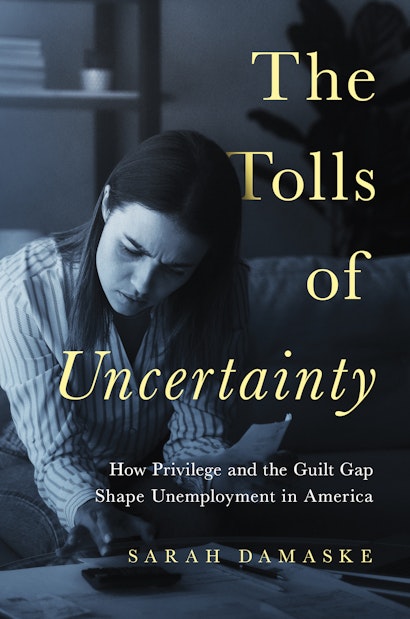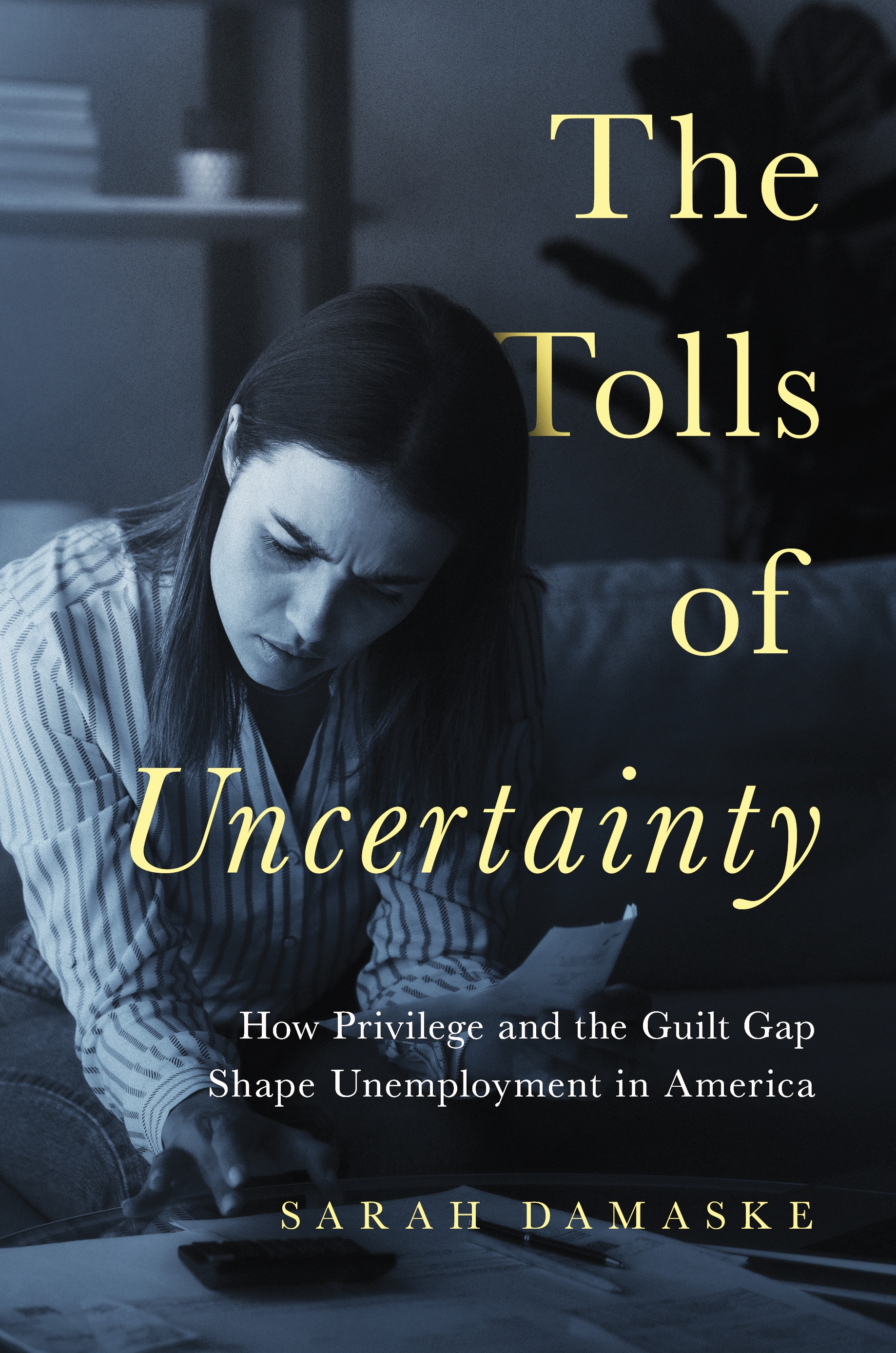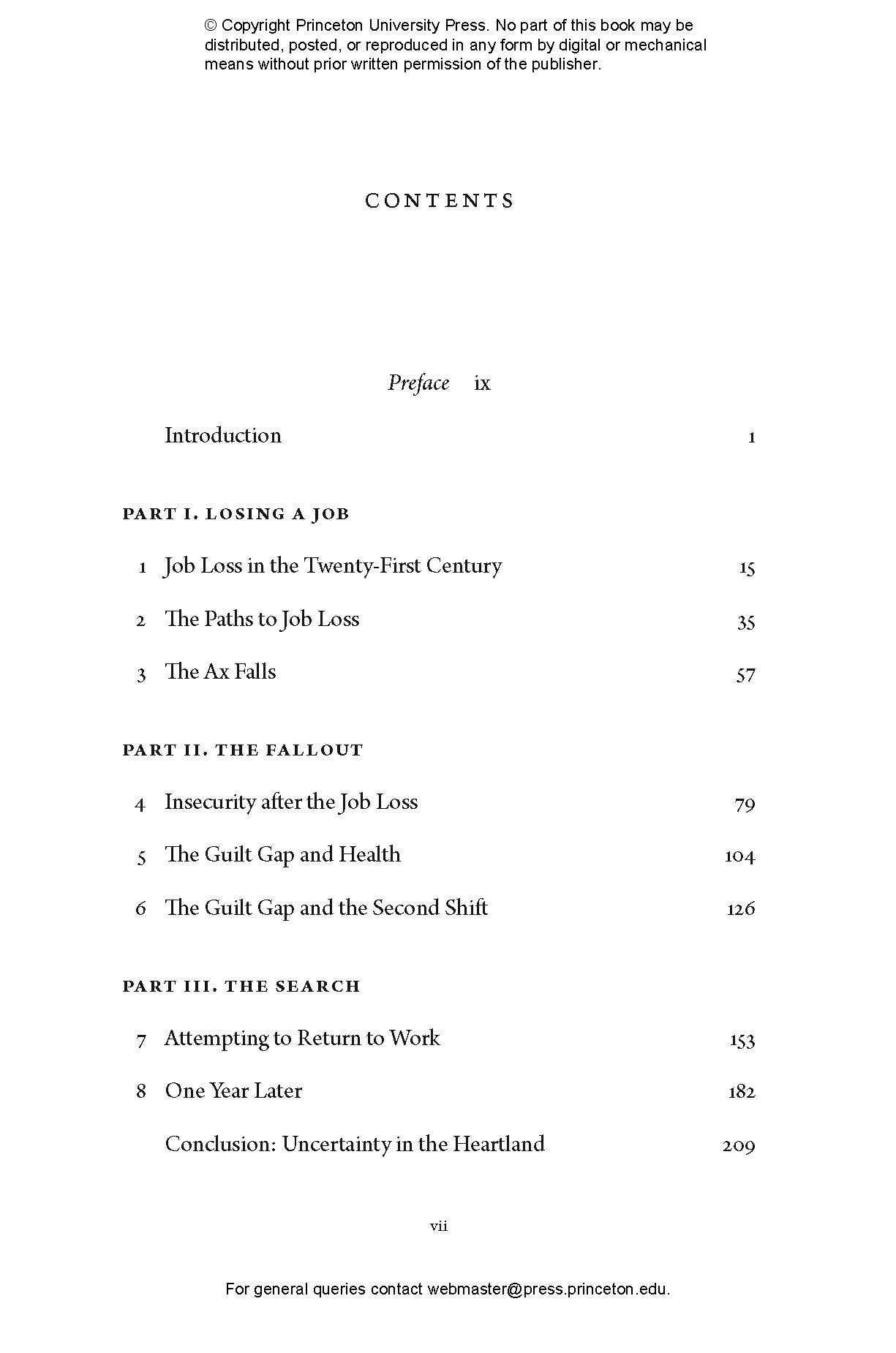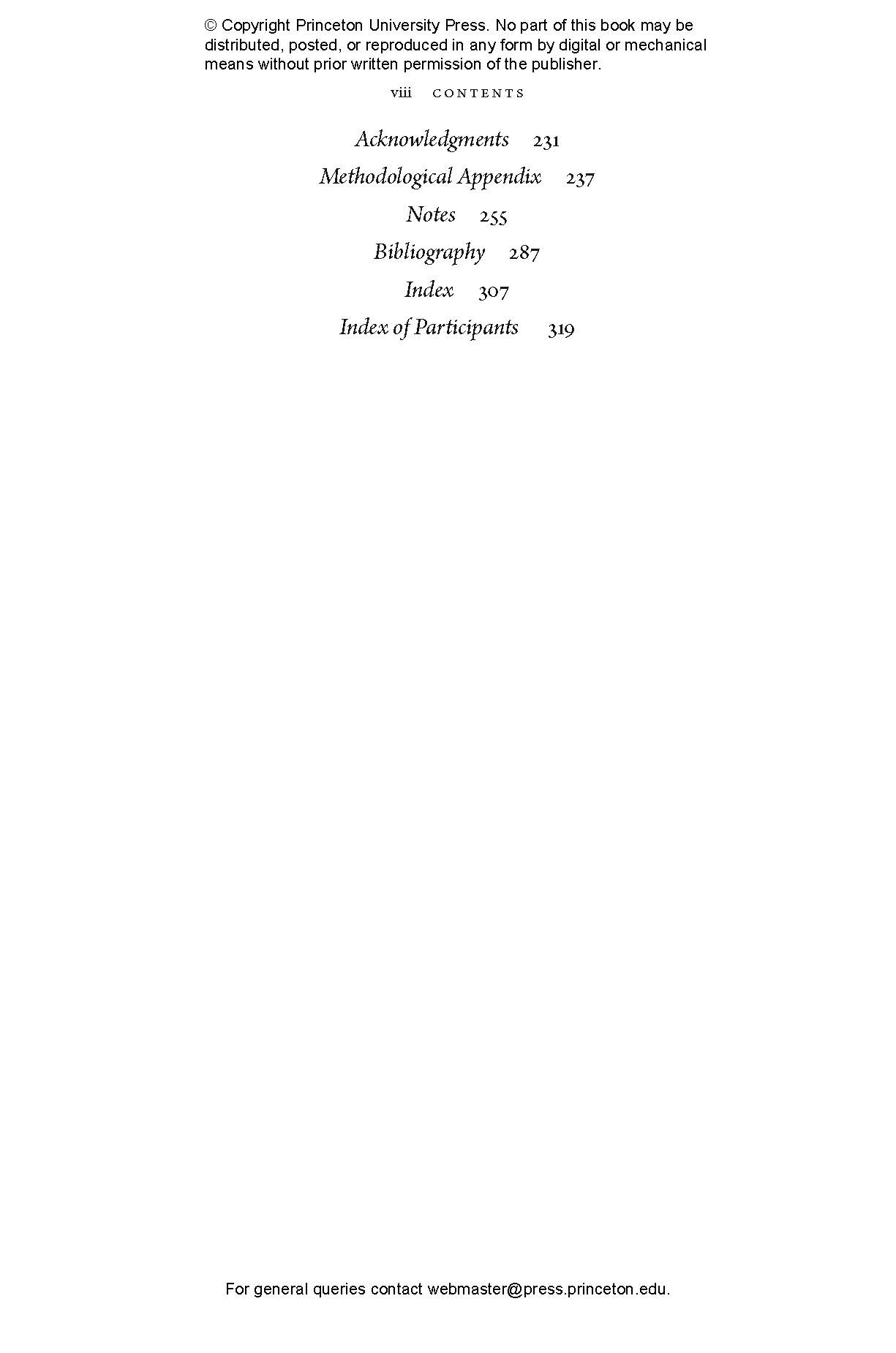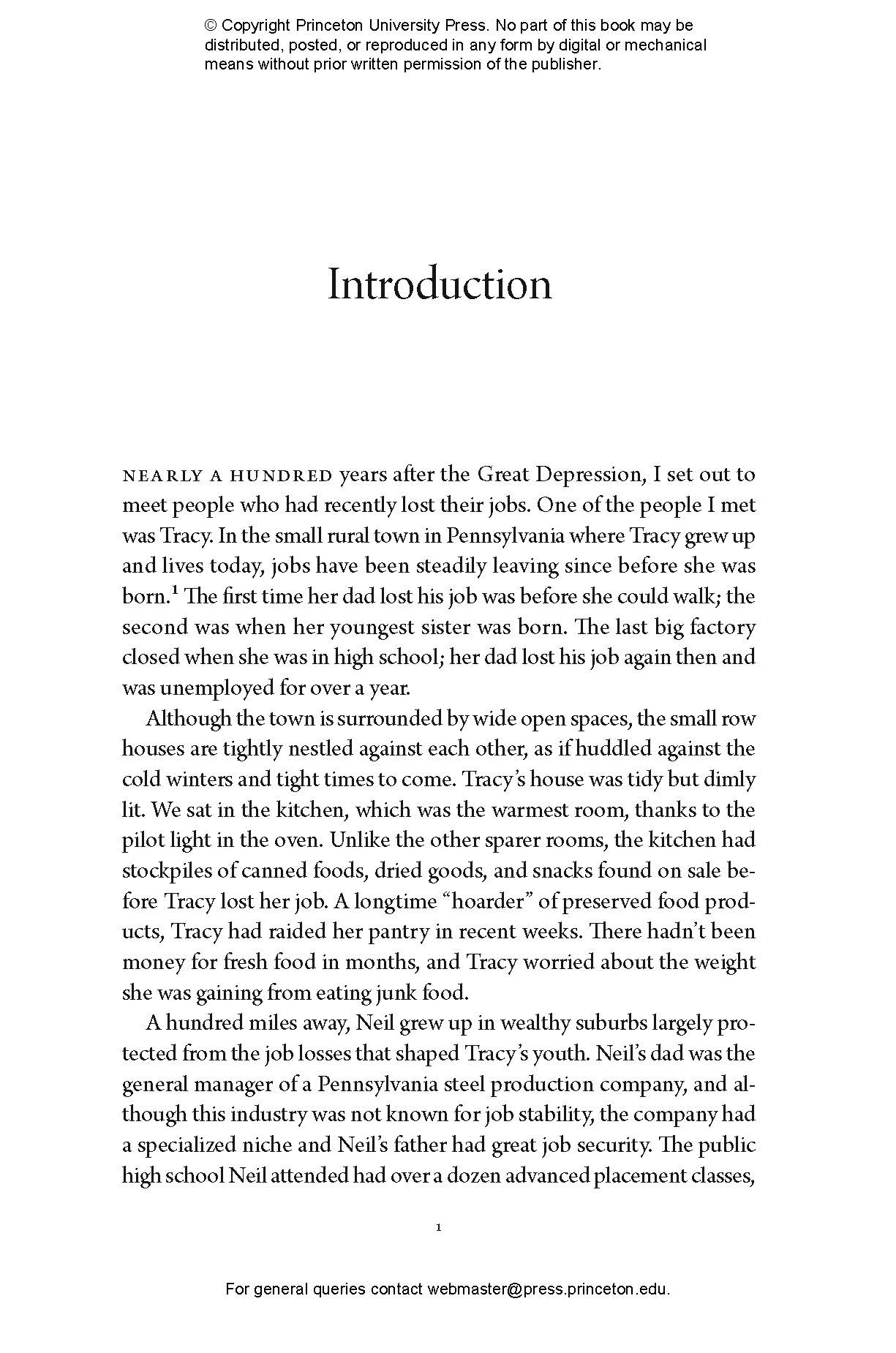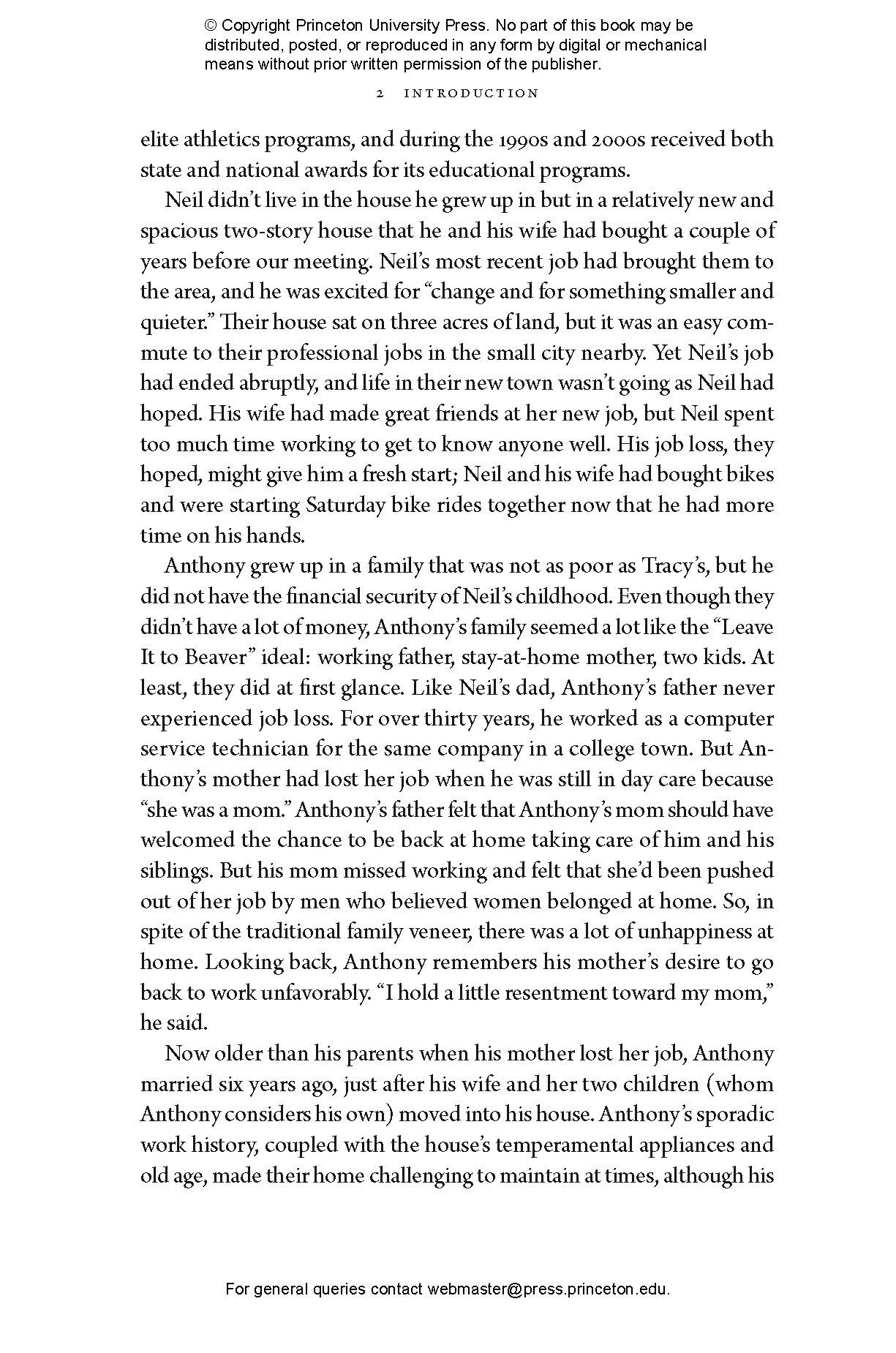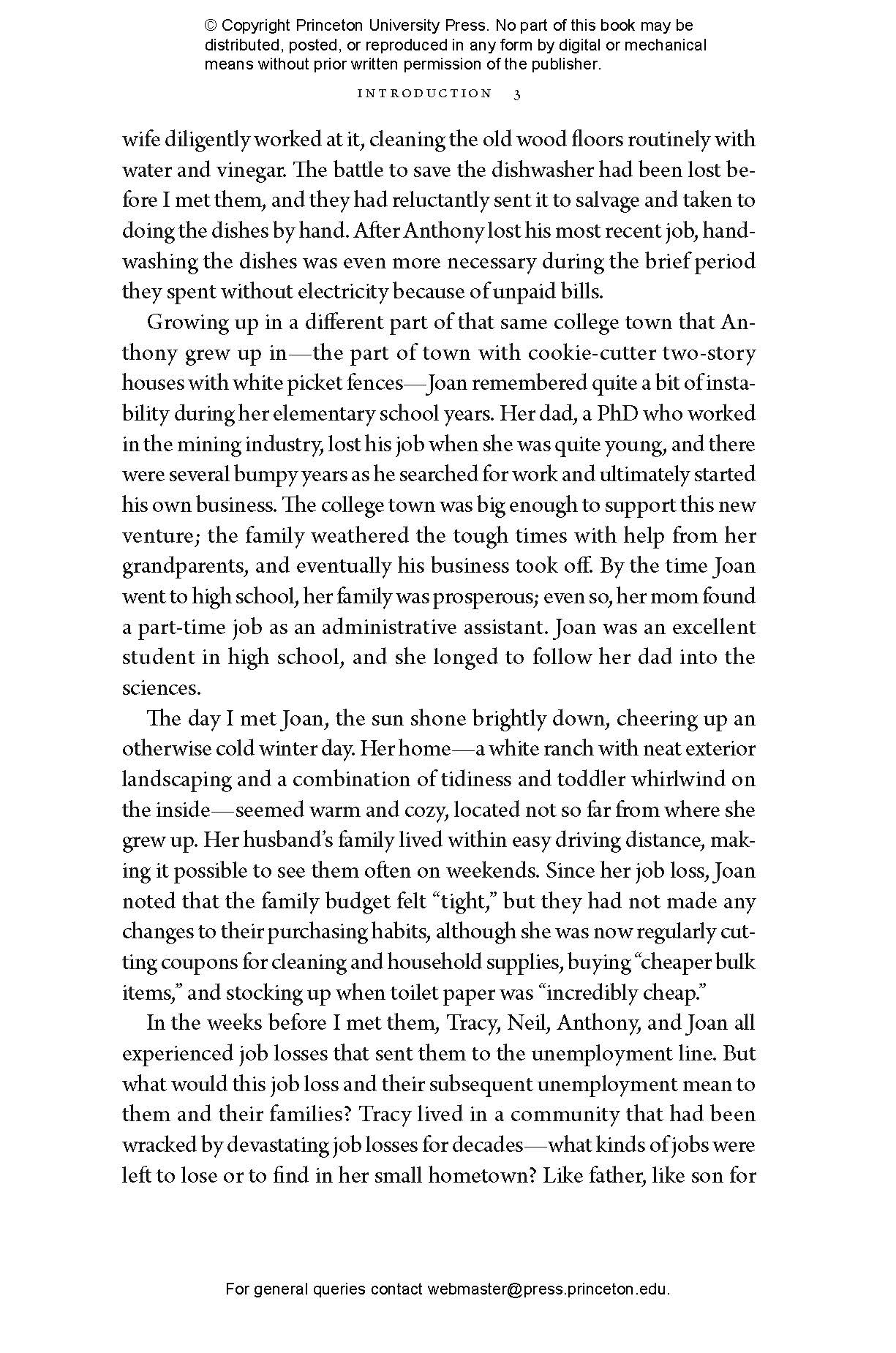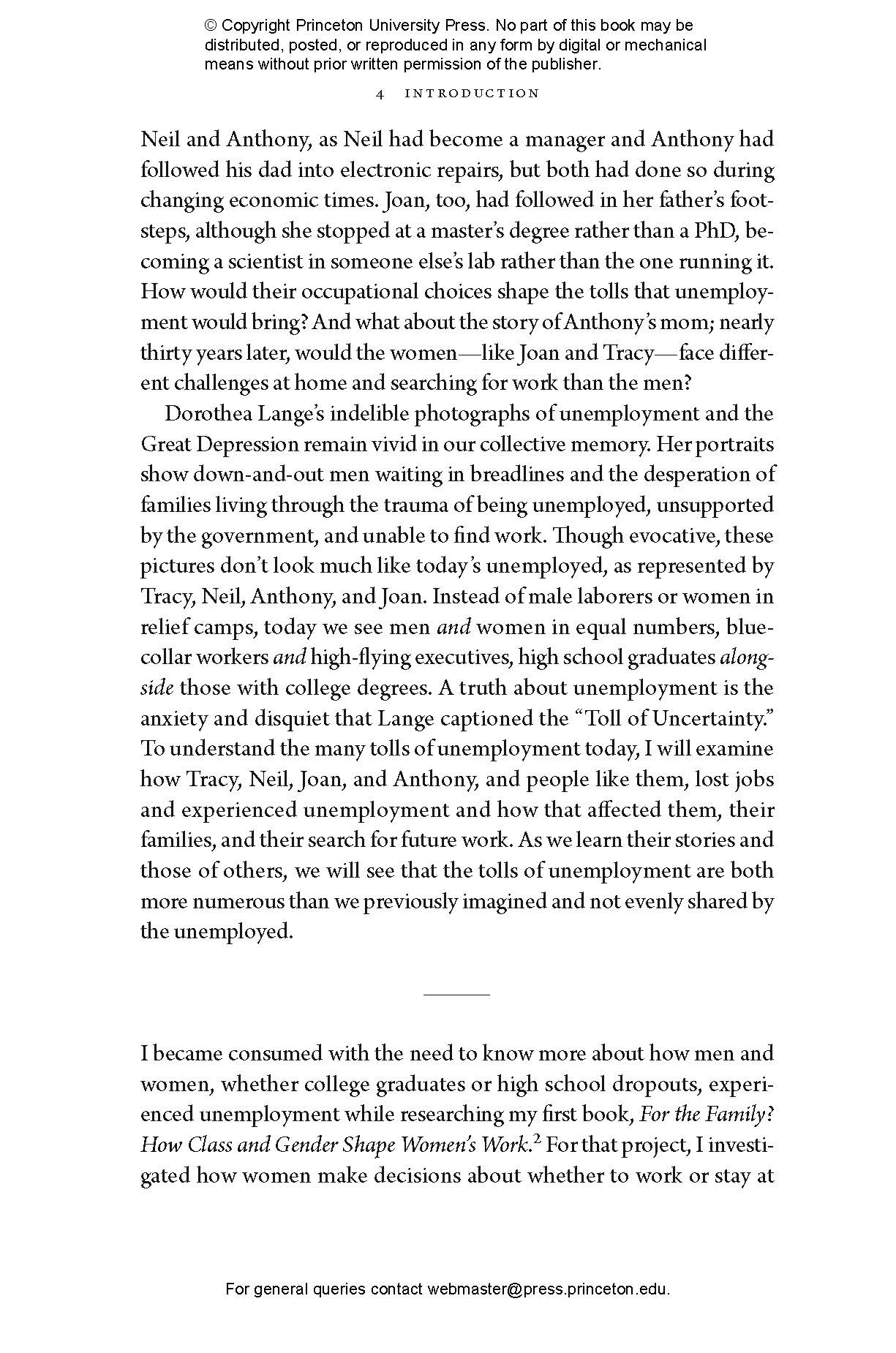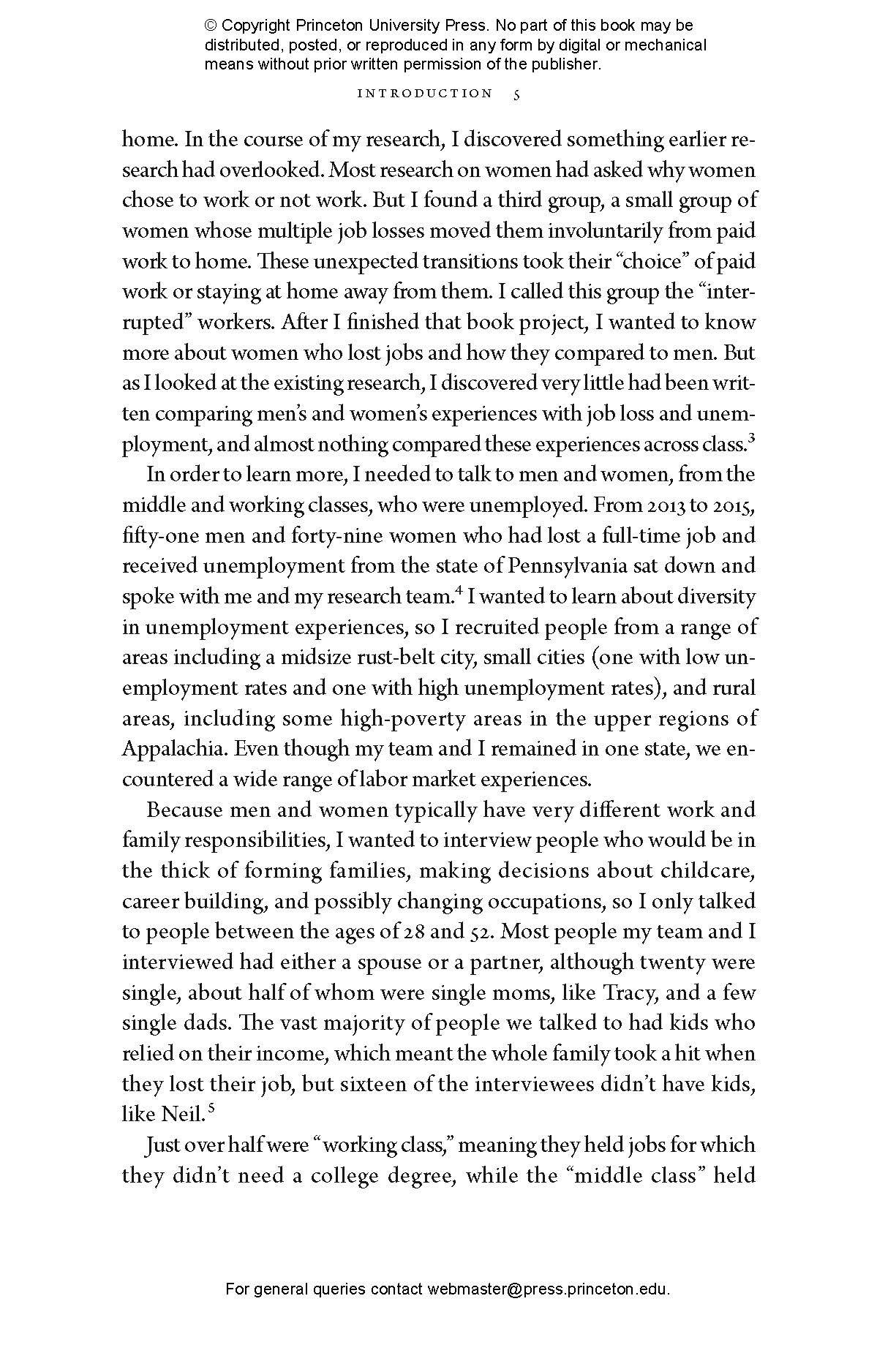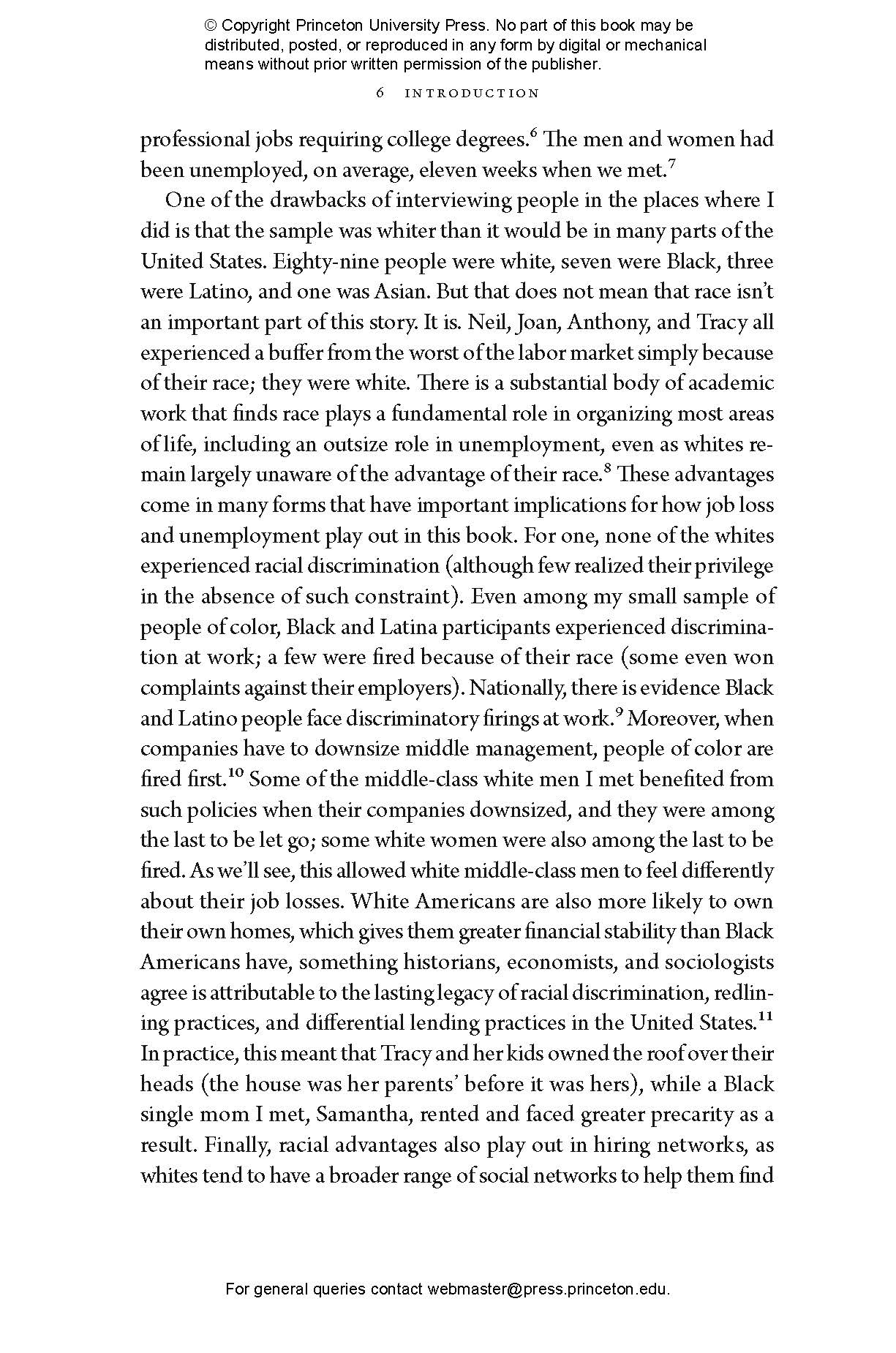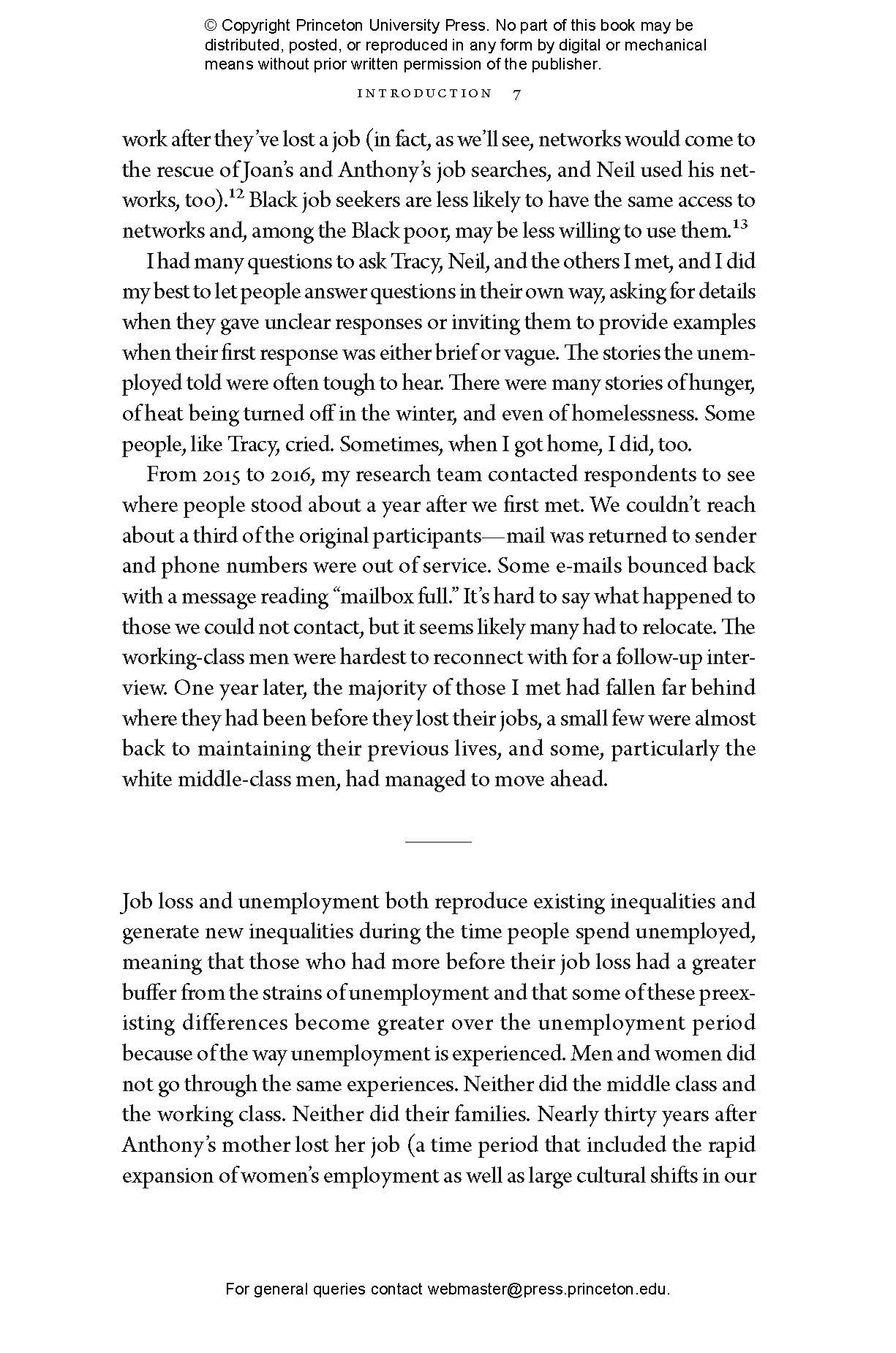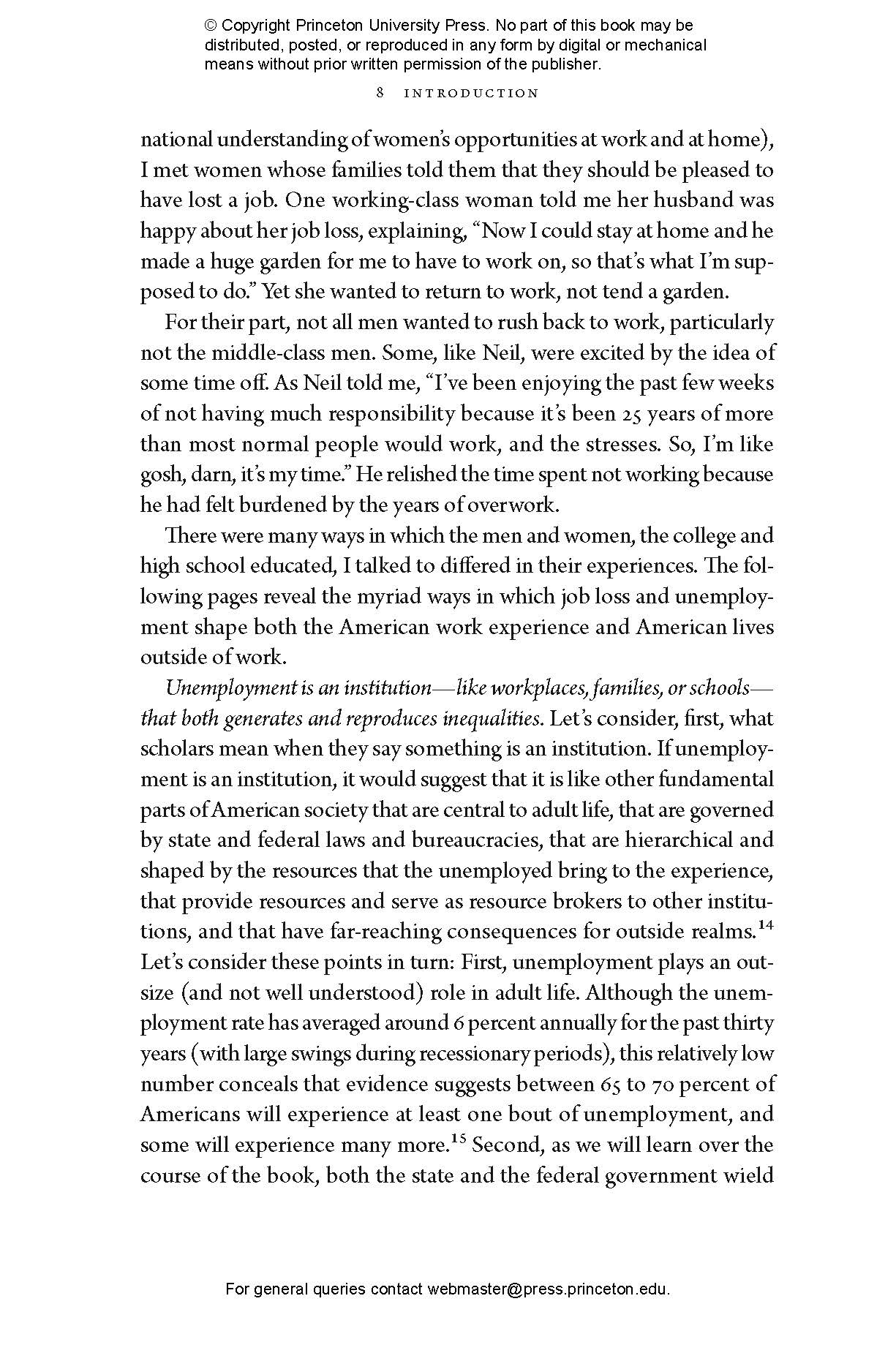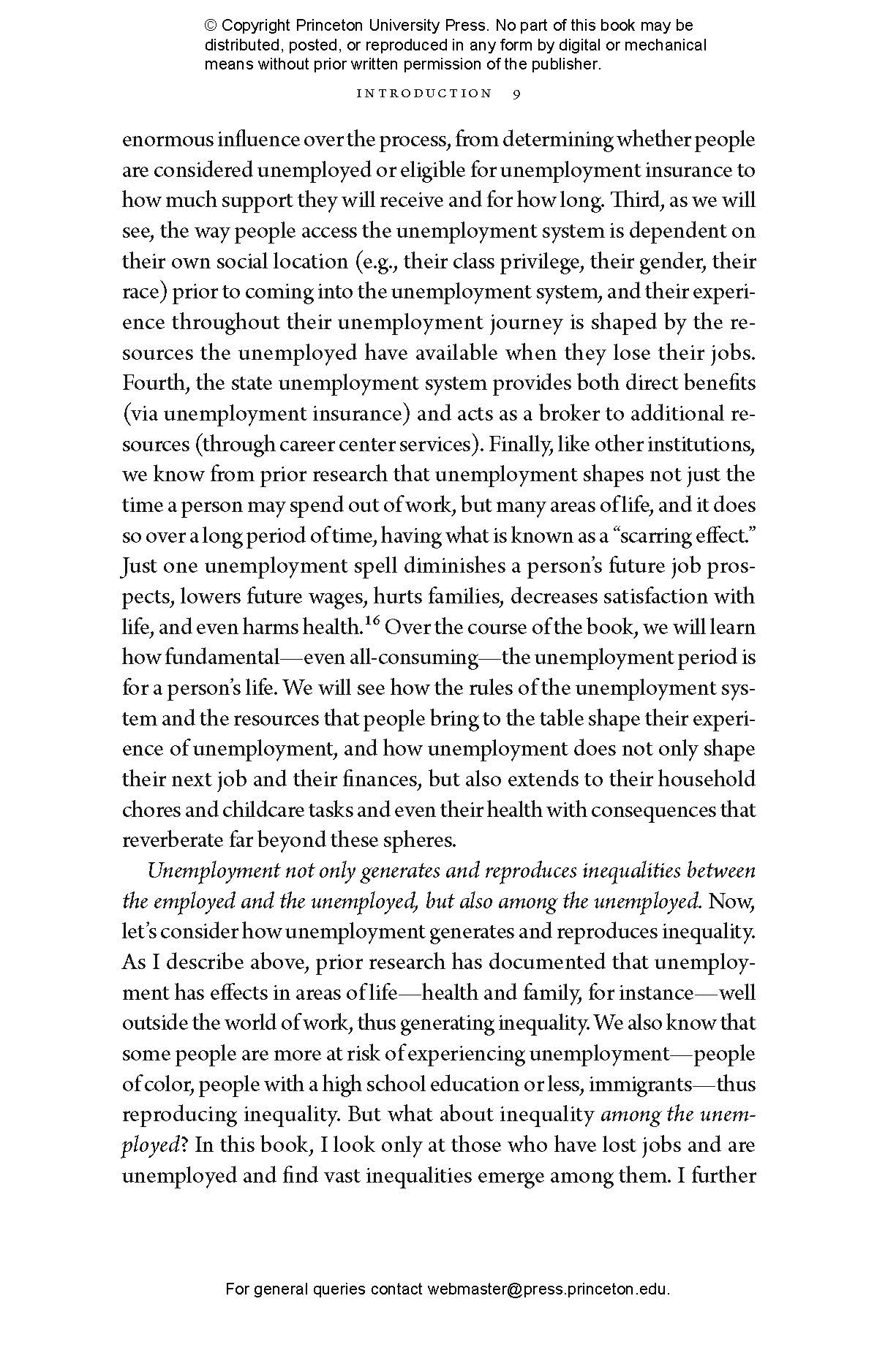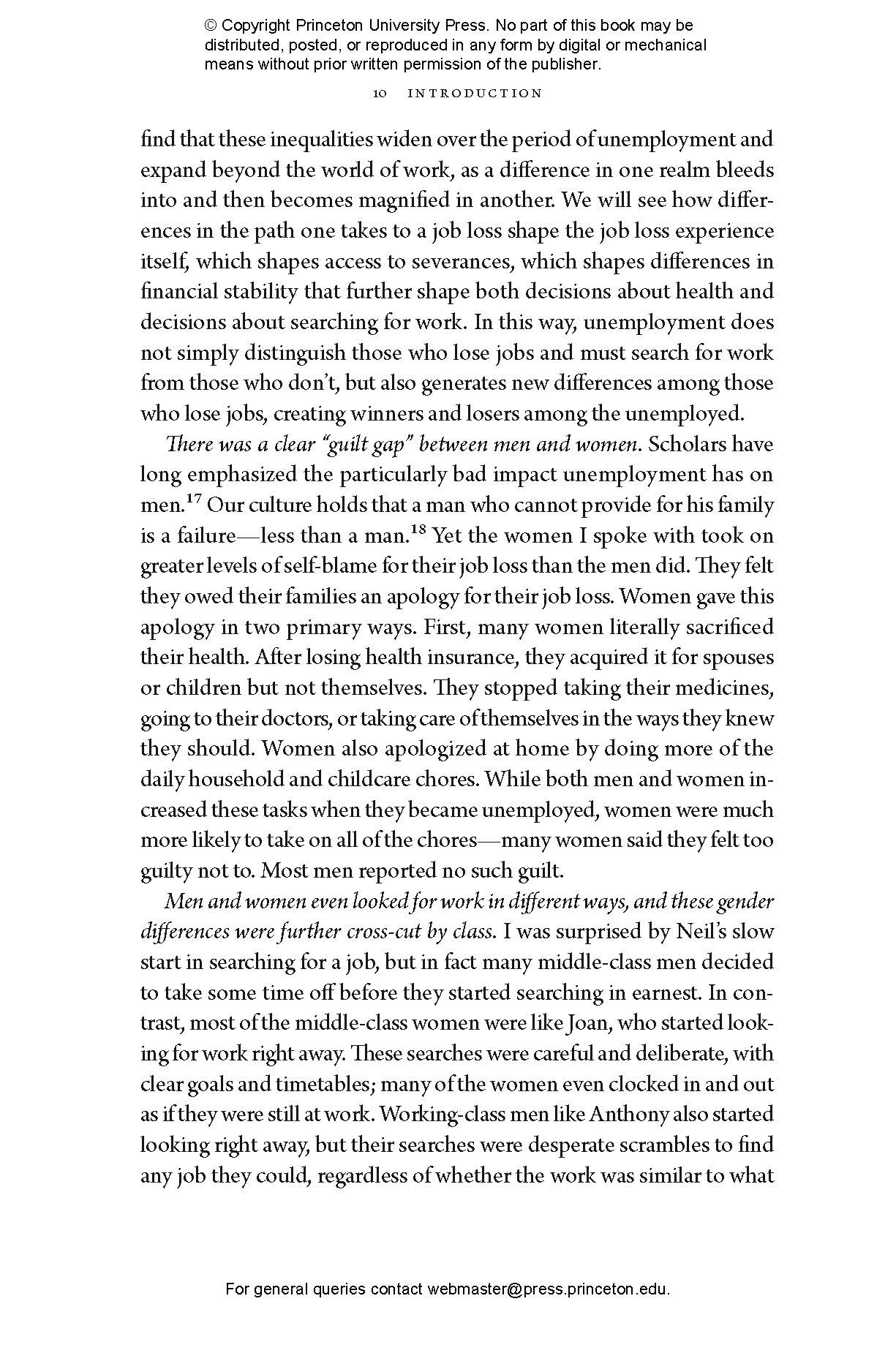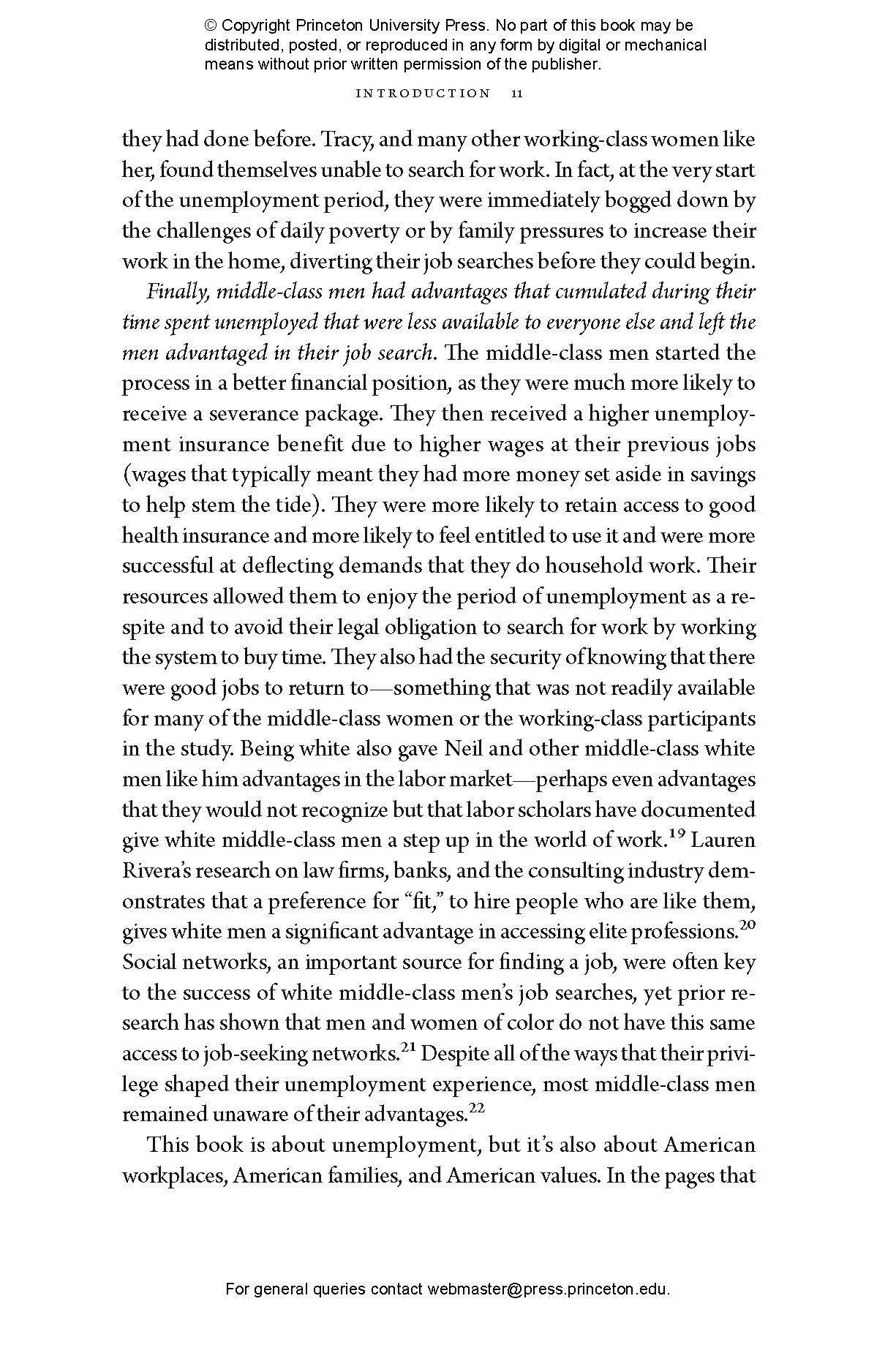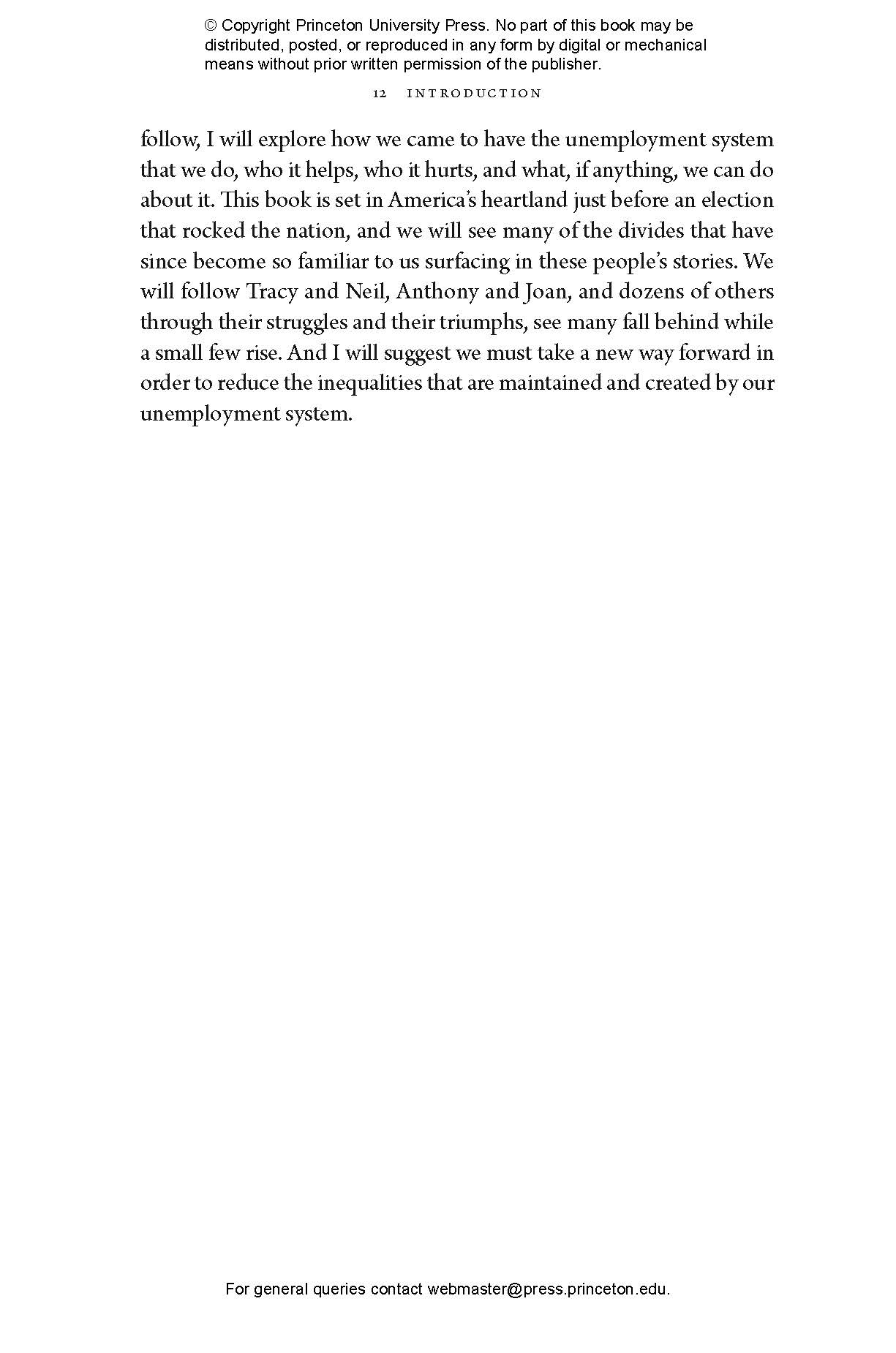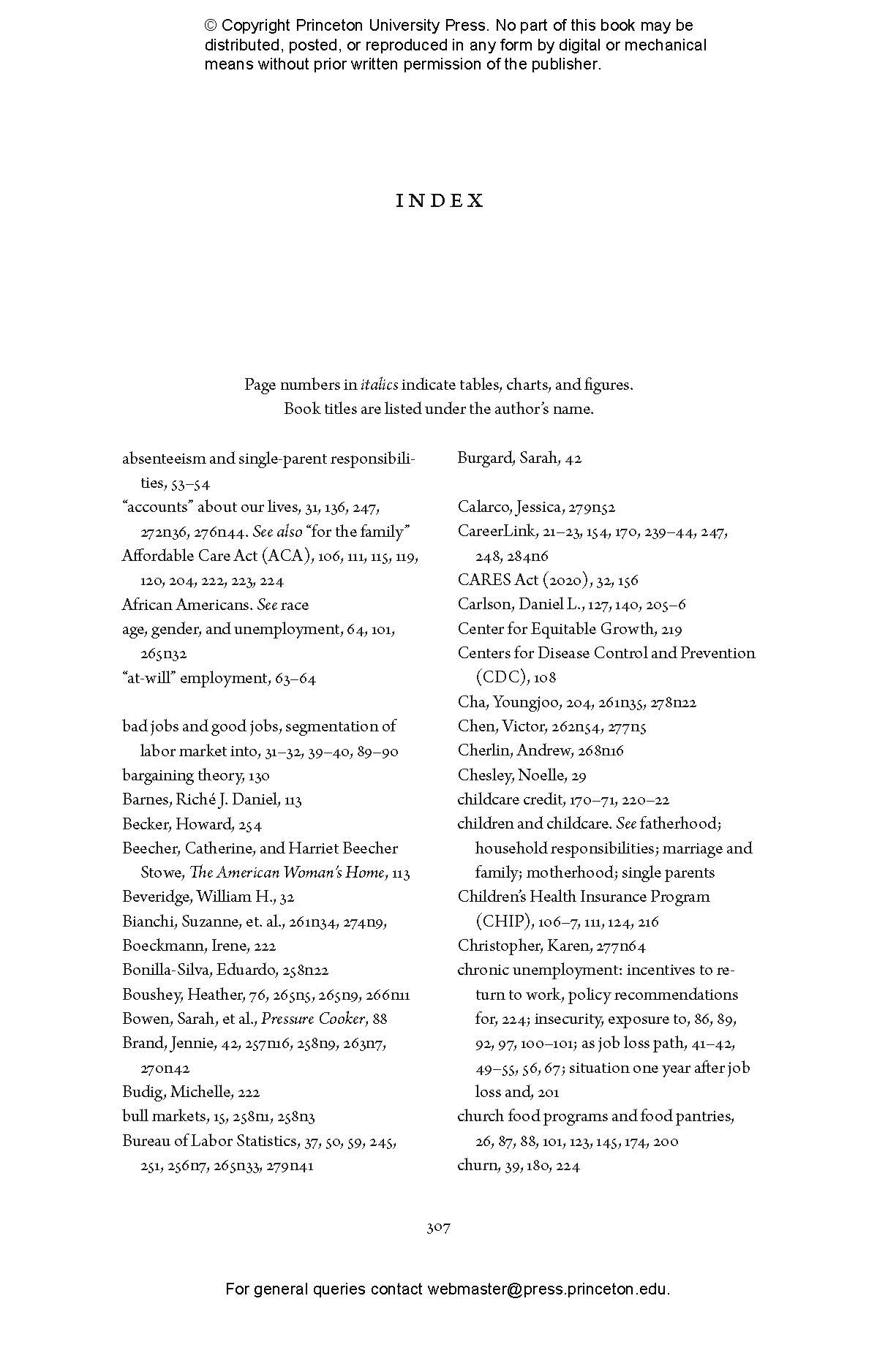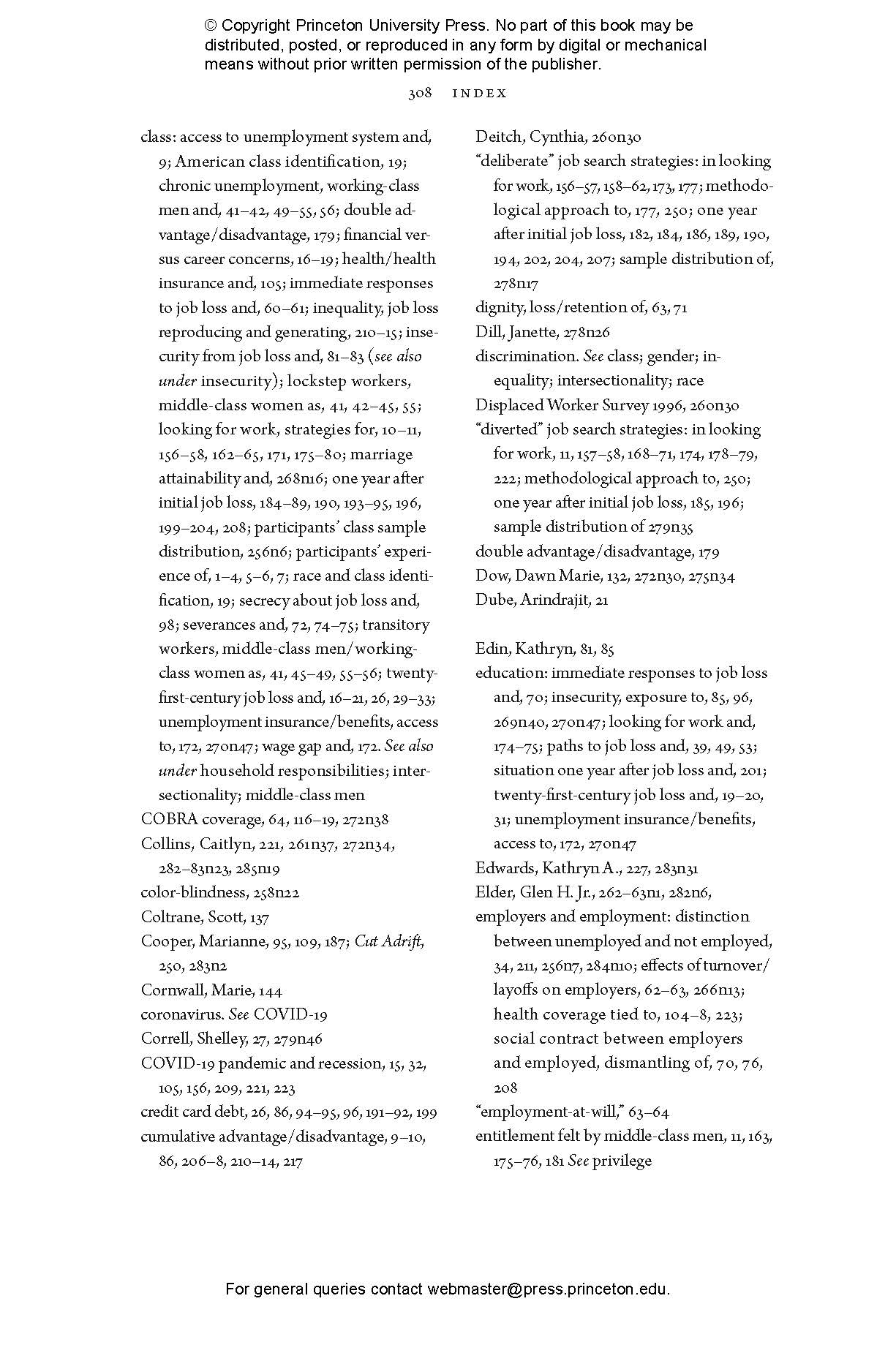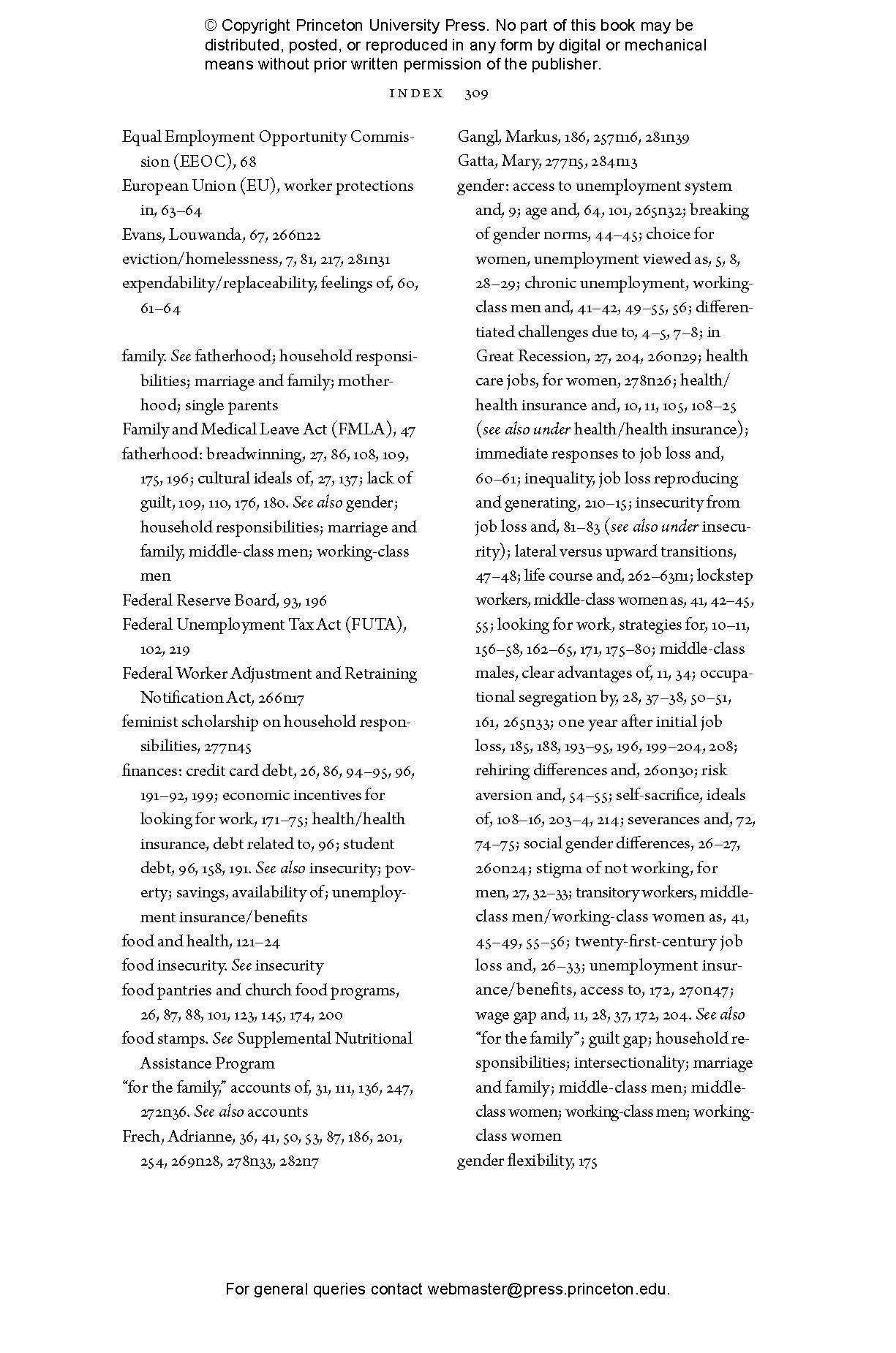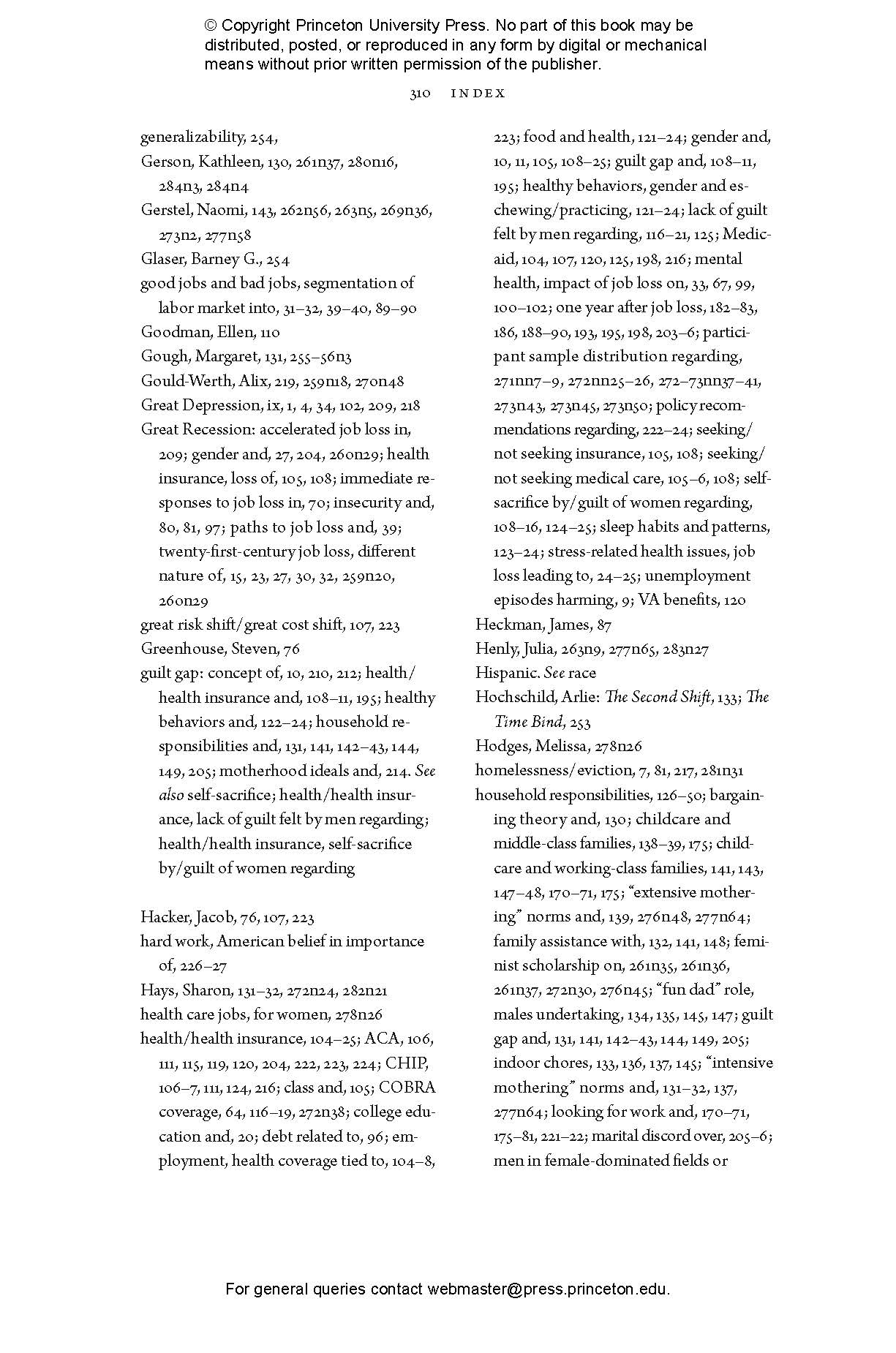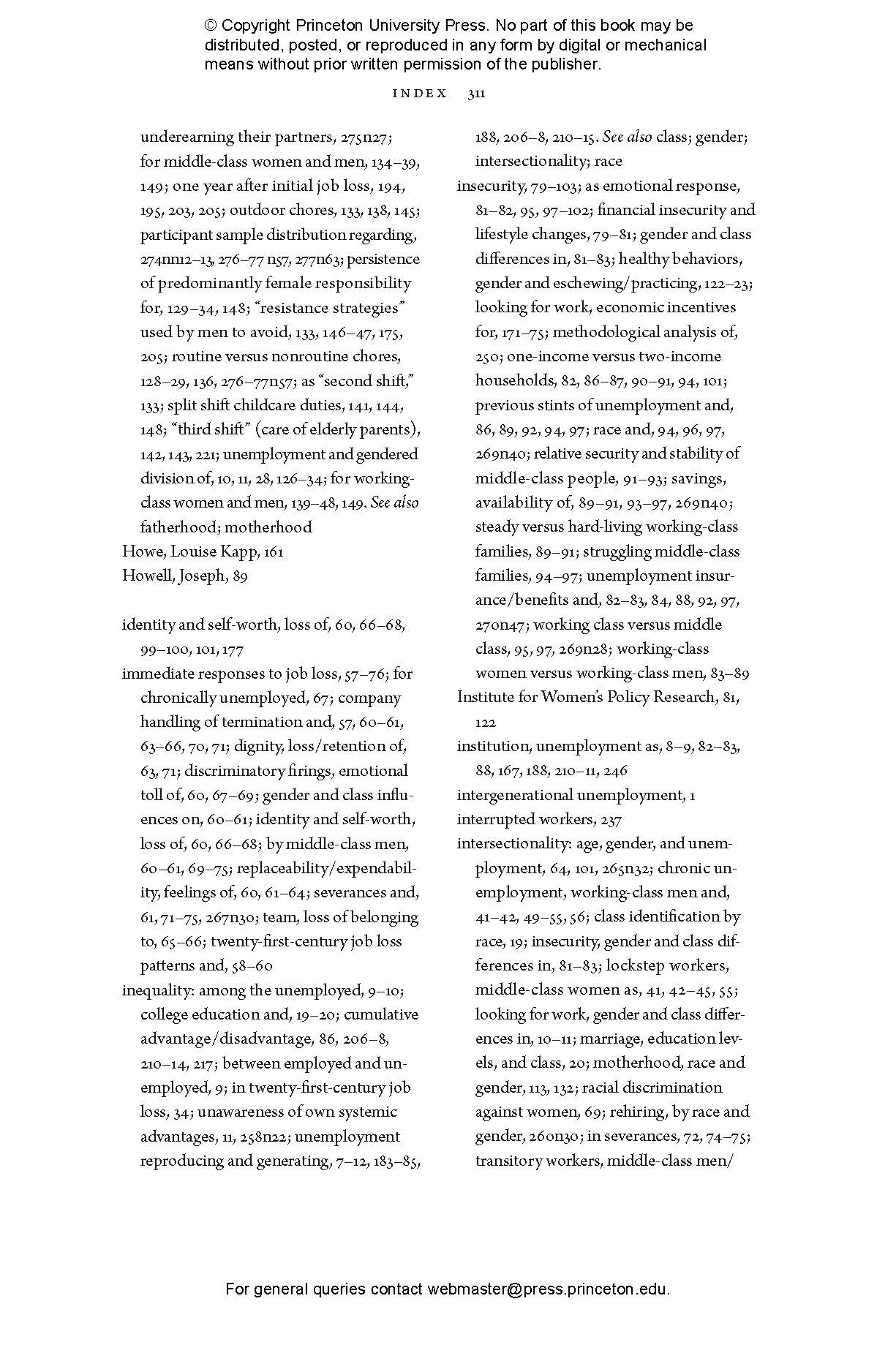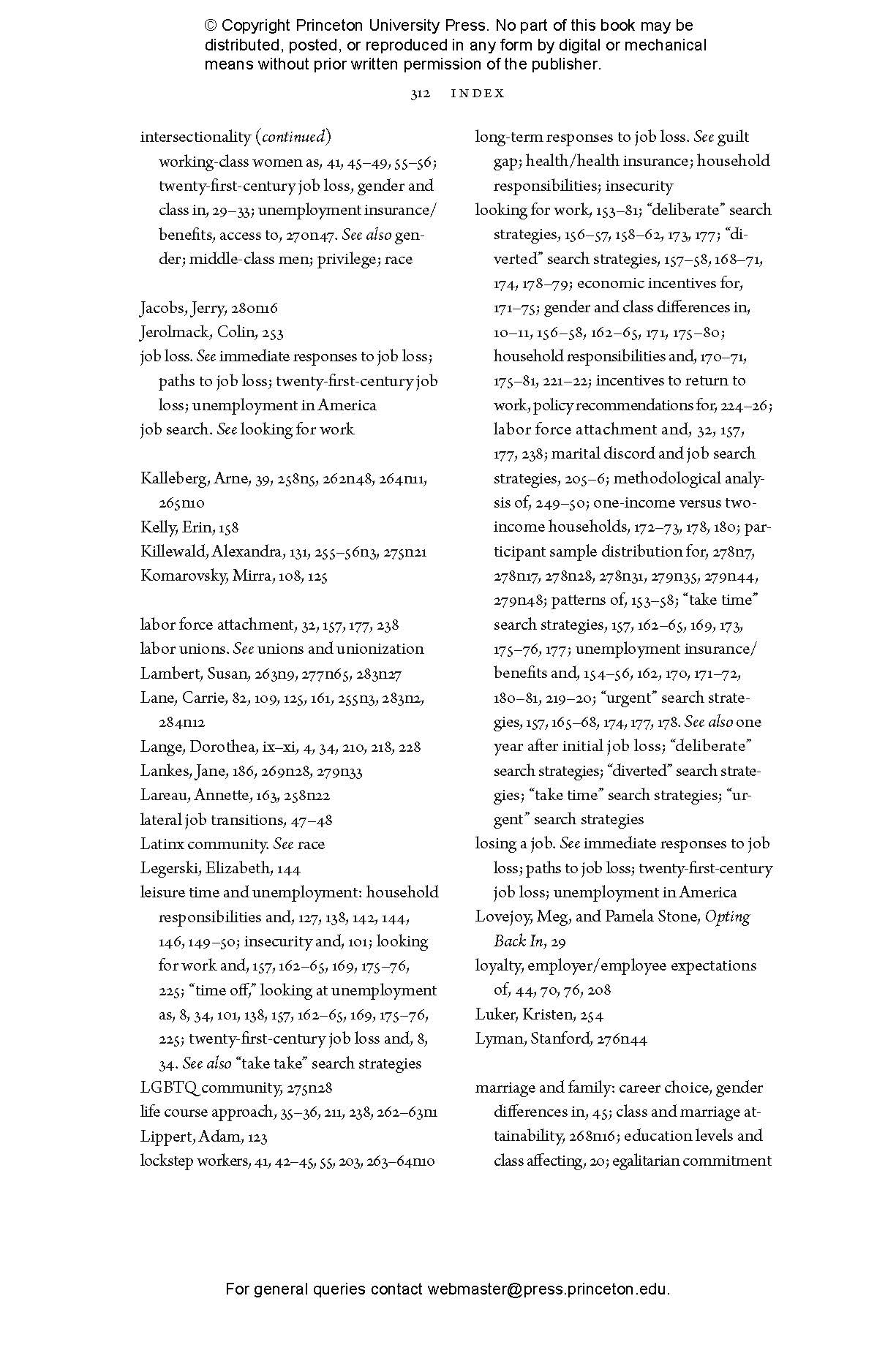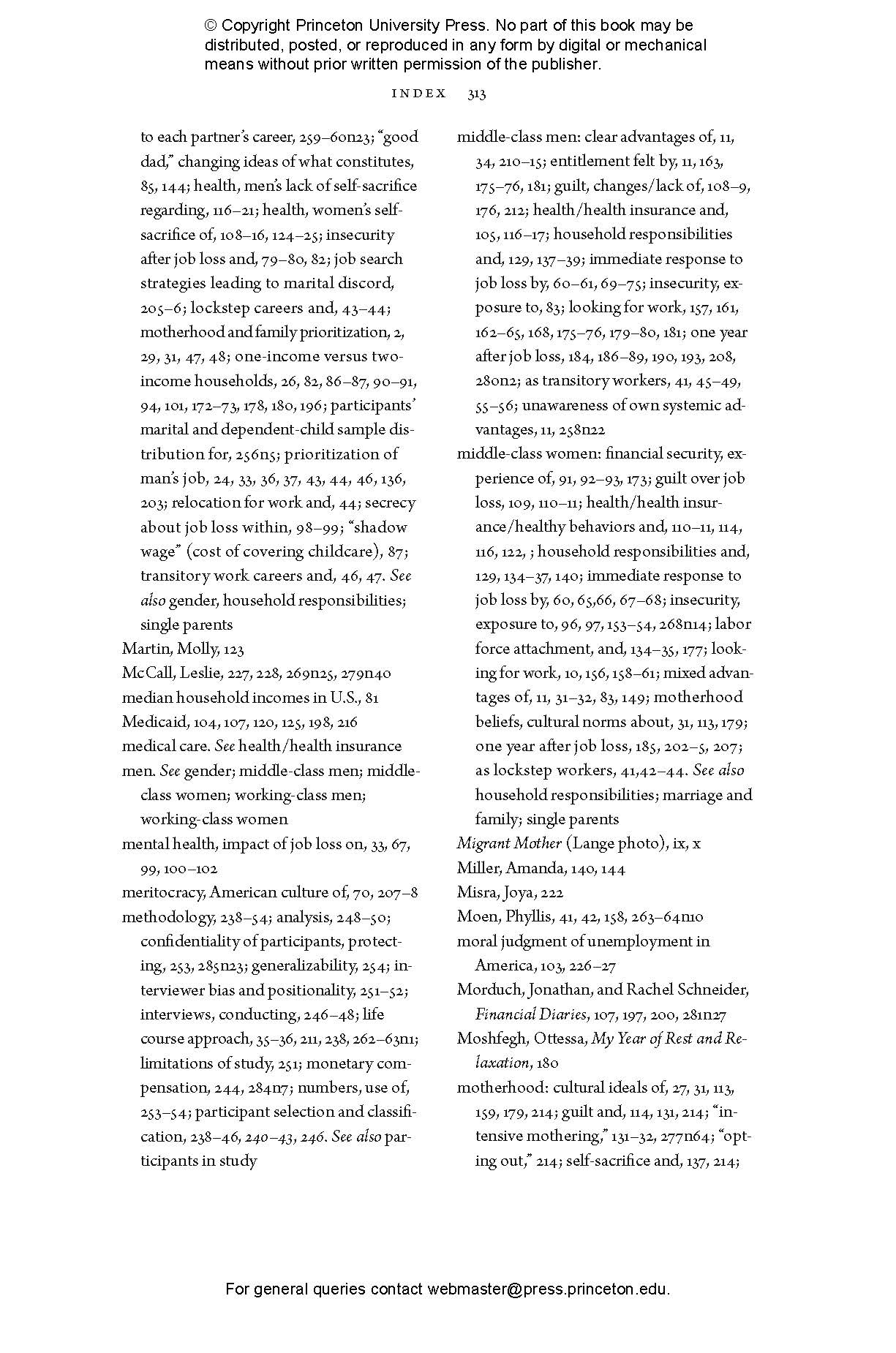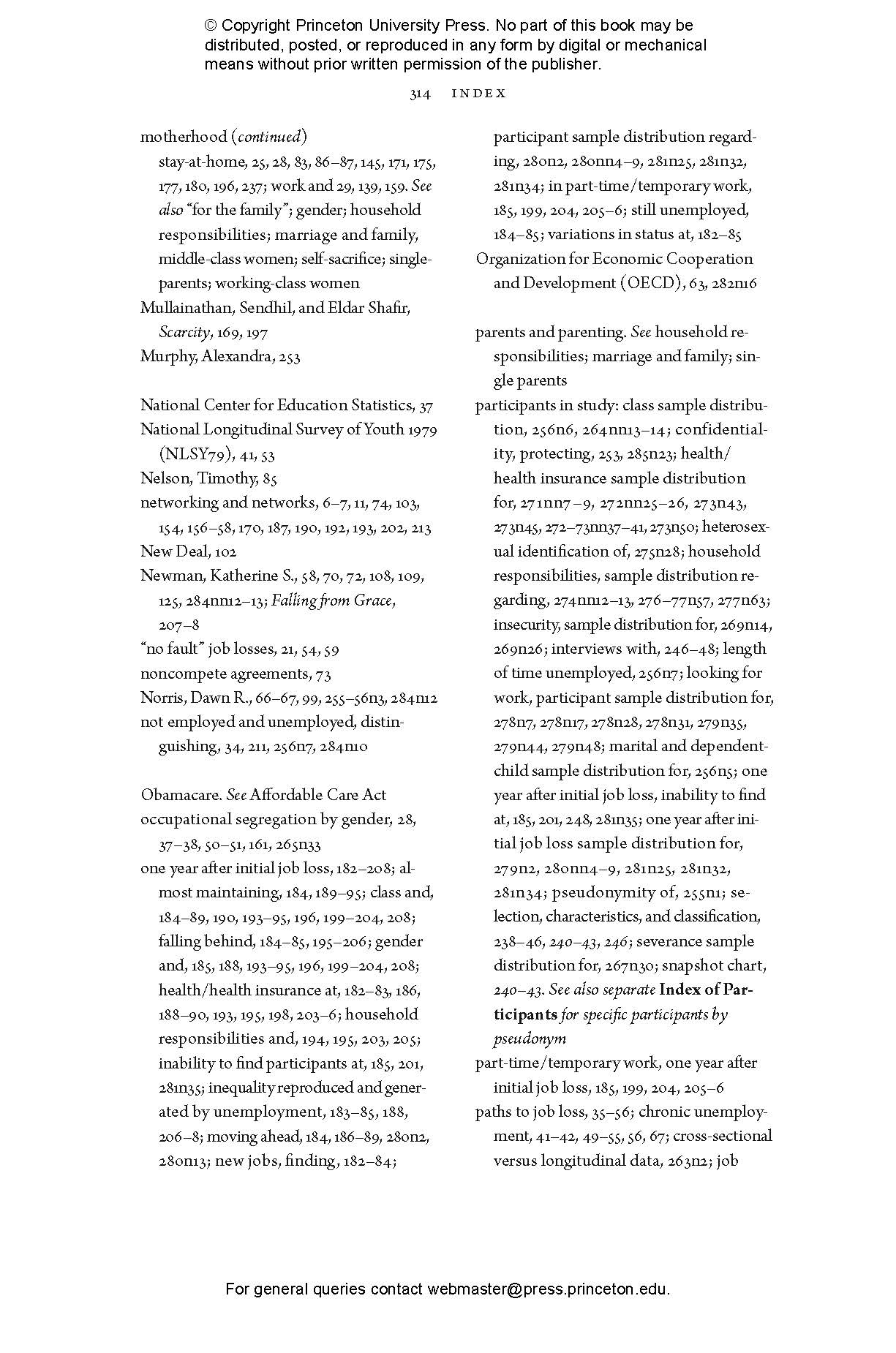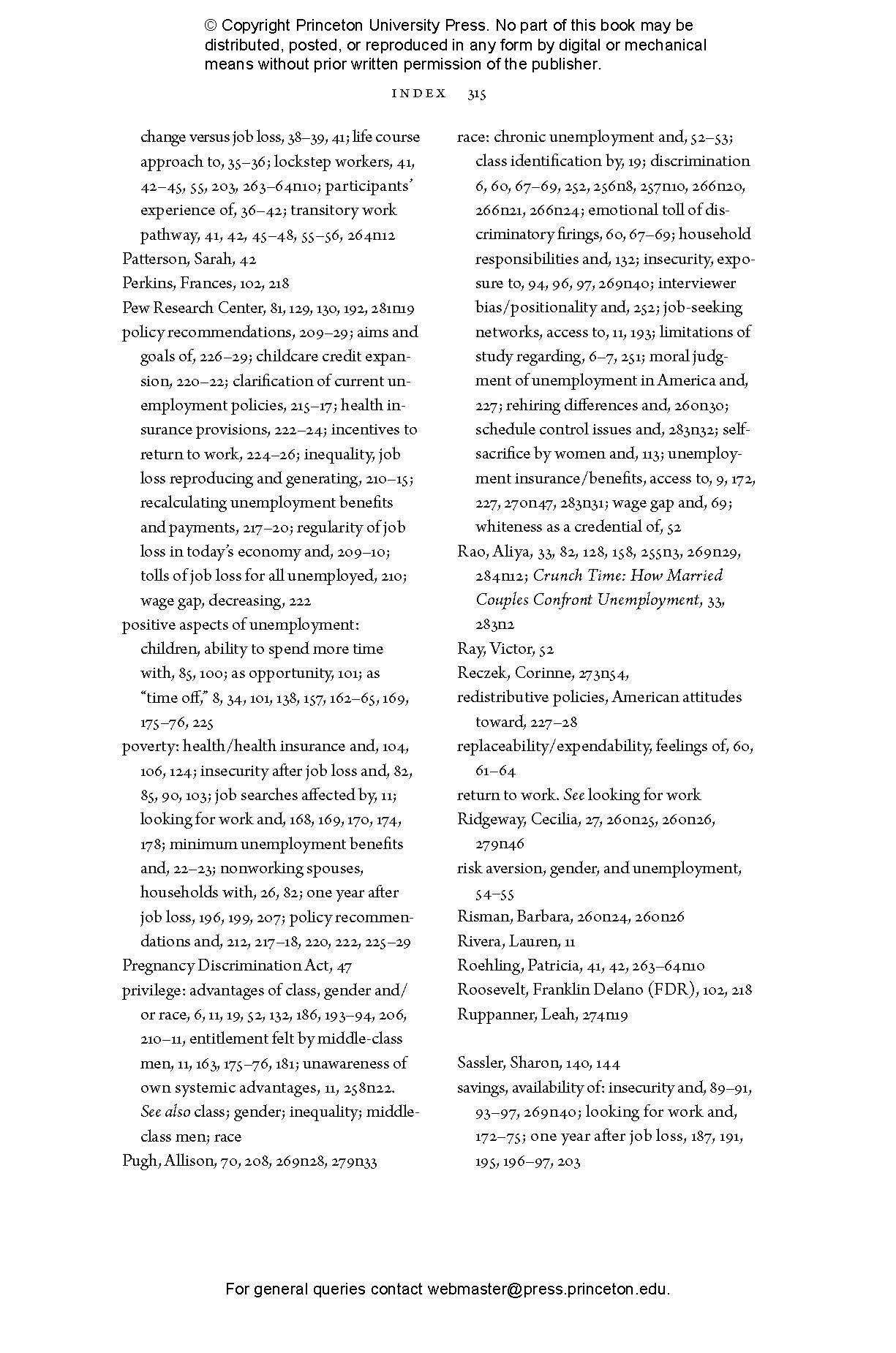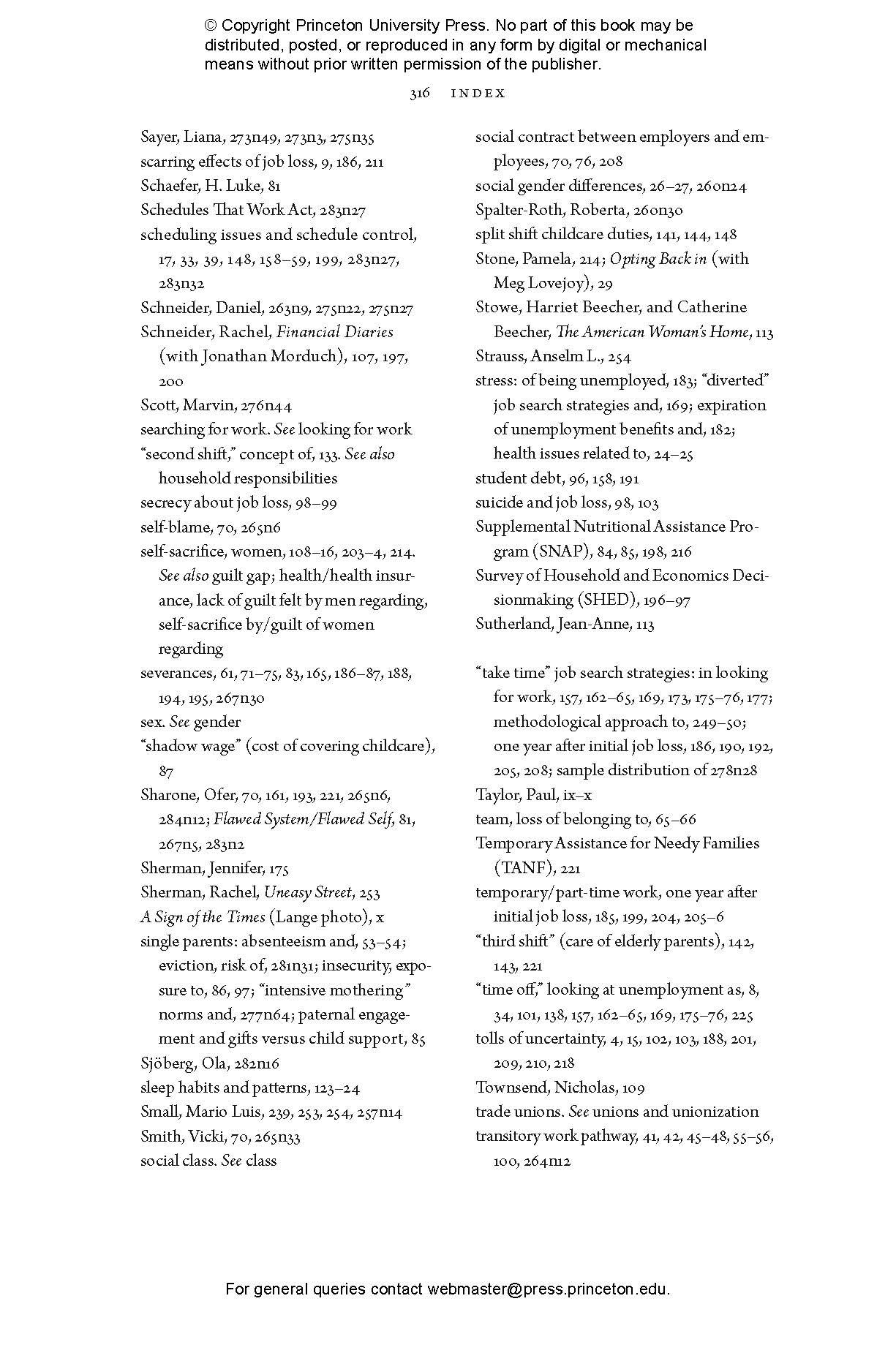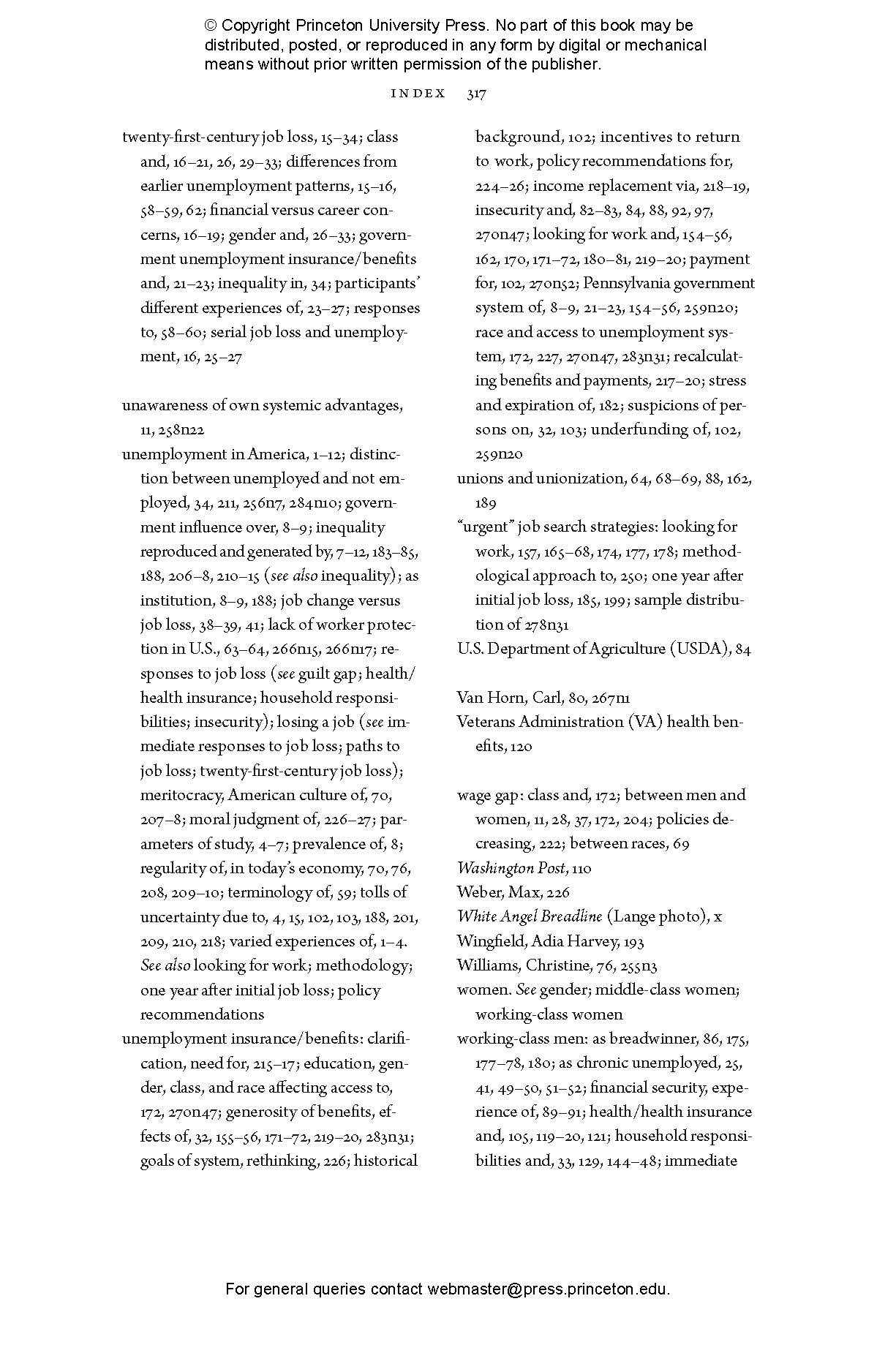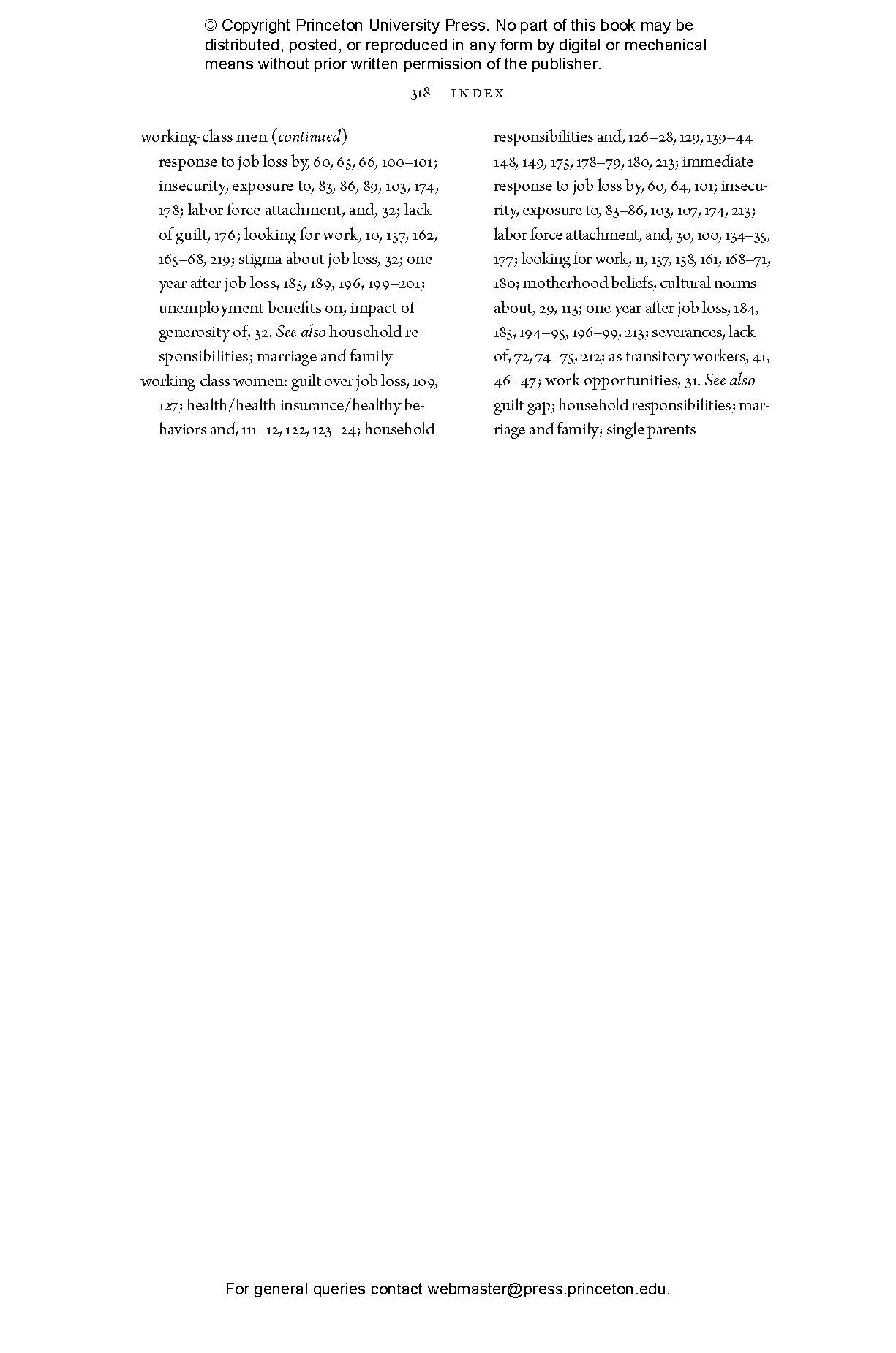Through the intimate stories of those seeking work, The Tolls of Uncertainty offers a startling look at the nation’s unemployment system—who it helps, who it hurts, and what, if anything, we can do to make it fair. Drawing on interviews with one hundred men and women who have lost jobs across Pennsylvania, Sarah Damaske examines the ways unemployment shapes families, finances, health, and the job hunt. Damaske demonstrates that commonly held views of unemployment are either incomplete or just plain wrong. Shaped by a person’s gender and class, unemployment generates new inequalities that cast uncertainties on the search for work and on life chances beyond the world of work, threatening opportunity in America.
Following in depth the lives of four individuals over the course of their unemployment experiences, Damaske offers insights into how the unemployed perceive their relationship to work. She reveals the high levels of blame that women who have lost jobs place on themselves, leading them to put their families’ needs above their own, sacrifice their health, and take on more tasks inside the home. This “guilt gap” illustrates how unemployment all too often exacerbates existing differences between men and women. Class privilege, too, gives some an advantage, while leaving others at the mercy of an underfunded unemployment system. Middle-class men are generally able to create the time and space to search for good work, but many others are bogged down by the challenges of poverty-level unemployment benefits and family pressures and fall further behind.
Timely and engaging, The Tolls of Uncertainty posits that a new path must be taken if the nation’s unemployed are to find real relief.
Awards and Recognition
- Honorable Mention for the Scholarly Achievement Award, North Central Sociological Association
- Winner of the William J. Goode Book Award, Family Section of the American Sociological Association
"Damaske powerfully demonstrates how gender and class intersect and produce widely divergent experiences among the unemployed. In a vivid and insightful analysis of recently unemployed working- and middle-class women and men, Damaske reveals novel mechanisms through which unemployment both exacerbates existing inequalities and creates new inequalities. The study offers unparalleled insight into the trajectories of the unemployed and makes poignant contributions to our understanding of economic inequality and gender. . . . An extremely captivating, compelling, and careful analysis of various gendered and classed mechanisms reproducing and creating inequalities among the unemployed."—Pilar Gonalons-Pons, Social Forces
"Damaske makes a compelling case that unemployment, like the pathways leading up to and following it, touches people in vastly different ways. . . . She argues we can do better. Let’s hope we can and do. The Tolls of Uncertainty points to narratives and policies that could undermine rather than reinforce existing inequalities."—Naomi Gerstel, Contemporary Sociology
"[A] fascinating new book. . . . The Tolls of Uncertainty reveals that middle-class white men are vastly overrepresented among the beneficiaries who fully recover from unemployment, while other groups tread water or end up worse off."—Christine L. Williams, Gender & Society
"There's a way to change the system and the way is to read [The Tolls of Uncertainty]. People need to understand that the unemployment experience is not these odd, ugly stereotypes."—Mark Price, Evidence-to-Impact podcast
"[The Tolls of Uncertainty] offers enduring lessons about unemployment and the family."—Naomi R. Cahn, Jotwell
"In work-obsessed America, government policies paradoxically do far less to encourage gainful employment than policies in other countries. Sarah Damaske adds crucial clarity and depth to this observation during this urgent moment of mass economic crisis. Painstakingly researched, The Tolls of Uncertainty provides an intimate picture of how thoroughly disabling job loss can be, and illuminates more than any other book I know how unemployment’s inequitable toll falls on those least able to weather it."—Leslie McCall, author of The Undeserving Rich: American Beliefs about Inequality, Opportunity, and Redistribution
"The Tolls of Uncertainty sheds new light on the experience of unemployment. Sarah Damaske’s illuminating interviews with unemployed workers show how class and gender profoundly shape this experience, and how America’s stingy unemployment insurance system fails to adequately protect workers and their families."—Ofer Sharone, author of Flawed System / Flawed Self: Job Searching and Unemployment Experiences
"Important and enlightening, The Tolls of Uncertainty provides a detailed treatment of what happens when people lose a job and search for another one. Sarah Damaske argues that although the process can be difficult for anyone, there are sharp and striking differences in how people experience job loss according to gender and class."—Andrew J. Cherlin, author of Labor’s Love Lost: The Rise and Fall of the Working-Class Family in America
"This eye-opening book explores how class, race, and gender affect people's experience of unemployment and reveals the ways men's and women's reactions to job loss have changed in recent decades. The Tolls of Uncertainty is engaging and thoughtful."—Stephanie Coontz, author of The Way We Never Were: American Families and the Nostalgia Trap
"Sarah Damaske offers an innovative take on an often mysterious yet very important topic—the American unemployment system. She masterfully fuses clear writing with personal experience, powerful storytelling, excellent signposting, and rigorous analysis. The careful untangling of race, gender, and class allows us to see how losing a job reverberates through people’s careers and family prospects."—Jennifer M. Silva, author of We’re Still Here: Pain and Politics in the Heart of America
"In The Tolls of Uncertainty, Sarah Damaske uses interview data with unemployed men and women across social classes to show how unemployment experiences vary based on gender and class background. Addressing a real gap in the literature on unemployment, this timely book’s empirical purposes are clear. This is a topic many are interested in and (unfortunately) also likely to experience themselves."—Aliya Hamid Rao, author of Crunch Time: How Married Couples Confront Unemployment
